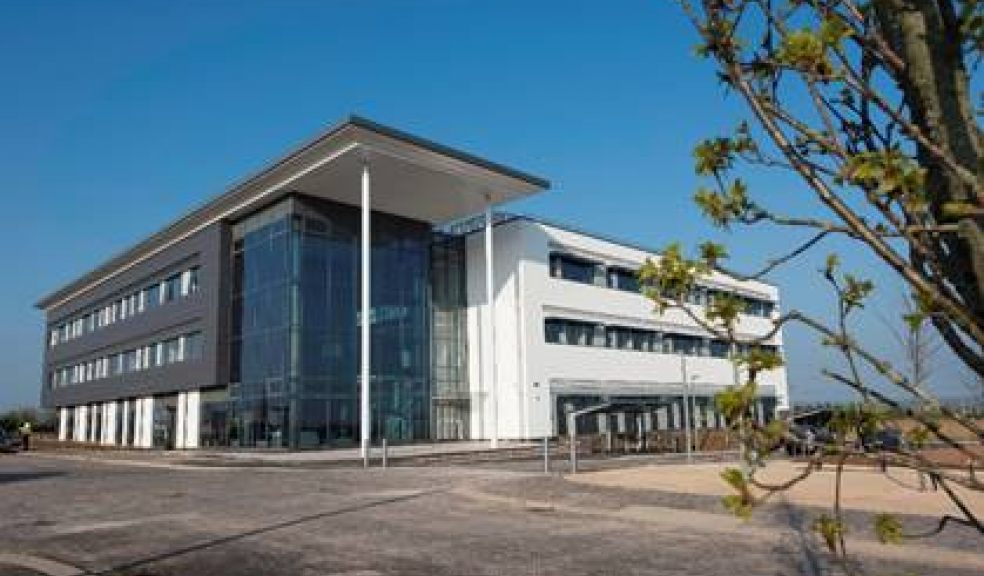
Exeter’s tech scene highlighted in 2017 Tech Nation Report
For the second year running, Exeter has been highlighted in the Tech Nation report as a thriving cluster within the UK’s digital landscape.
The latest report confirms London’s position as an international powerhouse, and the UK as the leading European country in the digital sector and possessing unrivalled digital tech specialisms.
Tech Nation 2017 shows that Exeter’s position as a leading location for tech and digital innovation continues to rise, with the number of digital economy jobs up by 18% on the previous year, now standing at 14,018. Digital business turnover has also increased for businesses in Exeter, up by 30%.
The report, produced by Tech City UK and launched on 22nd March at the Royal Institute, London, reveals that the UK’s digital economy is growing 50% faster than the wider economy, a trend that can be seen in the city of Exeter with 82 new start-ups and a tech sector growth potential of 79%. Average digital salaries are also outpacing non-digital salaries, with digital salaries in Exeter averaging £38,284.
The overall economic output (GVA) of the digital tech industries across the UK is £97billion, with Exeter contributing £150million of that total figure. Exeter ranks number one city in the UK at 98% for quality of life and average house prices of £263,439 versus London’s 59% for quality of life and housing price average of £582,816.
Dr Sally Basker, Chief Executive Officer of Exeter Science Park said: “This new Tech Nation report clearly puts Exeter on the map in terms of the digital economy and tech innovation. Exeter boasts over 14,000 digital jobs, which is very impressive for a working population of 87,800. Our digital output of £150million proves that companies in Exeter are making a significant contribution to the overall economy, and whilst the digital industry in Exeter faces challenges in recruiting highly skilled workers, a trend seen across the country, Exeter boasts a 98% satisfaction level in terms of quality of life, lower house prices and commercial rent prices.”
Over the past five years, the UK digital tech economy has attracted more venture capital (VC) and private equity (PE) investment than any other European country, standing at £28 billion. London remains at the centre of tech growth and prosperity for the UK and the whole of Europe, attracting £2.2billion more than its two closest competitors, Amsterdam and Paris.
However, Reading and Bristol and Bath have a higher density of digital tech businesses than the capital city, at 7.26% and 4.35% respectively. Exeter scored a medium ranking of 0.47% for tech business density, just short of London’s 0.86%.
Key locations and organisations in Exeter detailed in the report include the Exeter Science Park, SETsquared Exeter, Exeter City Futures, Tech Exeter and Exeter Mathematics School. The arrival of the Met Office’s new £97million supercomputer was named as a landmark event for the city, and the University, The Generator and Digital Exeter have all gleaned mentions in what makes Exeter’s tech scene so impressive.
Joe Pearce, Business Support, SETsquared Exeter said: “It is great to see Exeter continuing to be recognised for the impact delivered by its digital and tech businesses and it looks set to continue as partnerships between the University, SETsquared, the Met Office and others will continue to provide opportunities for businesses to grow and thrive in the area.”
At the launch, panel members discussed the challenges faced by the industry and the need for the UK to maintain its dominant position in Europe and across the world. The panel members discussed the need for tech hubs across the country to continue growing, as cities overtake London in aspects of digital excellence and innovation.
Cllr Rosie Denham, Lead Councillor for Economy at Exeter City Council, said: “The world of work is changing and all cities need to recognise the importance of embracing new technologies. I am pleased that the recent progress in Exeter’s digital sector is being recognised.”
It was also widely acknowledged at the launch that there is a potential skills crisis emerging, with a consistent demand across the country for a higher calibre of ‘product people’ to manage diverse teams across all aspects of business. In addition, it is noted that over the next 20 years, all businesses will be primarily digital, and will require high-end integration skills.
There is much potential for the tech sector to continue its unprecedented levels of growth, but it is felt that future success in the UK (over the next 5 years) will require turning a strong reputation for the functional specialisms into a capability for integrating these advances into a range of industries, and this requires much more than simply coding.
Joel Stobart, SETsquared Exeter member and Chief Technology Officer at Custodian Solutions said: “It's clear that Exeter has a unique quality of life. The natural beauty, sustainable growth, community pride and tech friendly culture all work together. Exeter is a place where technology businesses, like ours, are given opportunity to thrive.”
View the full report here.

















